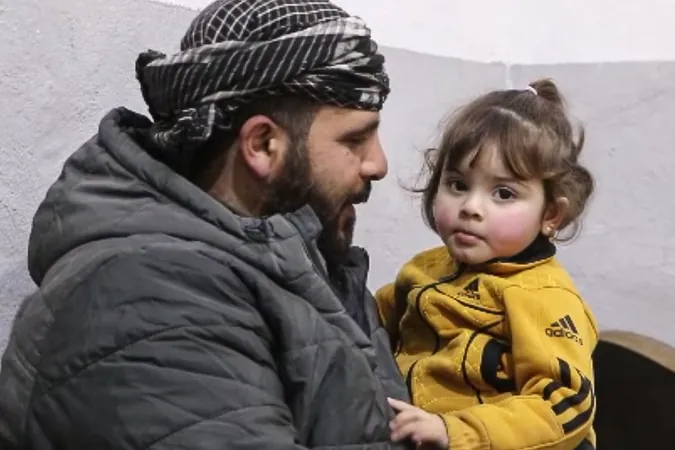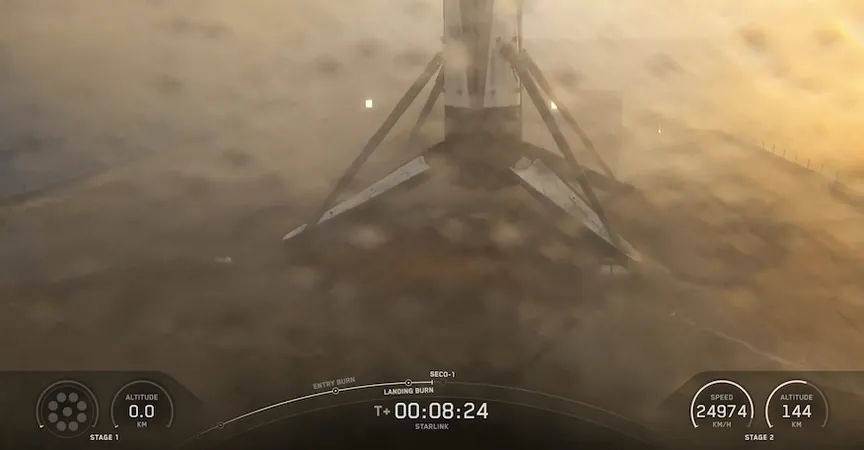
A Ray of Hope: How Health Services Are Transforming Syrian Displacement Camps
2025-09-09
Author: Charlotte
In the heart of northern Aleppo, three-year-old Lana has spent her entire life amidst conflict. Born into chaos, she resides in a cramped displacement camp where families endure harsh living conditions, limited access to clean water, and an ever-present threat of disease.
One night, Lana's father faced his worst nightmare as his daughter's fever skyrocketed. "We were terrified," he recalls. Initially, they tried home remedies, but when Lana's condition didn't improve, they rushed her to a nearby hospital.
Doctors quickly diagnosed her with meningitis—a perilous infection that can become deadly without prompt treatment. Lana was admitted immediately and received critical care for 14 days, which included medication to lower her fever and hydration to restore her strength.
"The medical team was incredibly supportive, answering all our questions and providing us with advice on how to prevent future illnesses," her father adds. Thanks to their intervention, Lana was able to leave the hospital hand in hand with her father, her health safeguarded for now.
Strengthening Health Systems in Crisis
Lana’s recovery marks a pivotal moment in a broader effort to enhance healthcare services in Syria’s displacement camps and curb the spread of infectious diseases. With critical support from the European Civil Protection and Humanitarian Aid Operations (ECHO), the World Health Organization (WHO) and partners are fortifying Syria's disease early warning system (EWARN). This network of health facilities and laboratories meticulously tracks illnesses, rapidly verifies alerts, and helps thwart potential outbreaks.
Health workers, like those from the Assistance Coordination Unit (ACU), play a crucial role: "Our mission extends beyond treatment—we visit families weekly to identify illnesses that may go unnoticed, ensuring that children like Lana receive the care they need," one health worker explains.
In just two months, nearly every health facility in Idlib and Aleppo effectively reported common illnesses such as diarrhoea and measles. The swift response teams verified alerts within a day, conducting nearly 200 visits to support local health staff. This proactive approach allows for the rapid identification of suspected outbreaks, enhancing community protection.
A Healthier Tomorrow Within Reach
The ongoing support of the EWARN system ensures timely detection and treatment of cases like Lana's before they escalate into widespread epidemics. Health teams consistently patrol camps, seeking early signs of illness and preventing vulnerable families from falling through the cracks.
Thanks to renewed funding from ECHO, the early warning system in Idlib and Aleppo will receive essential support until the end of 2025. This initiative is crucial as Syria navigates a challenging transition towards a more integrated national disease surveillance and response system.
As the nation moves towards healing after years of turmoil, stories like Lana’s highlight the urgent need for investment in disease surveillance and response. Every child who regains their health is a beacon of hope, reminding us that a healthier, more resilient future for Syrian families is not just a dream—it is achievable.









 Brasil (PT)
Brasil (PT)
 Canada (EN)
Canada (EN)
 Chile (ES)
Chile (ES)
 Česko (CS)
Česko (CS)
 대한민국 (KO)
대한민국 (KO)
 España (ES)
España (ES)
 France (FR)
France (FR)
 Hong Kong (EN)
Hong Kong (EN)
 Italia (IT)
Italia (IT)
 日本 (JA)
日本 (JA)
 Magyarország (HU)
Magyarország (HU)
 Norge (NO)
Norge (NO)
 Polska (PL)
Polska (PL)
 Schweiz (DE)
Schweiz (DE)
 Singapore (EN)
Singapore (EN)
 Sverige (SV)
Sverige (SV)
 Suomi (FI)
Suomi (FI)
 Türkiye (TR)
Türkiye (TR)
 الإمارات العربية المتحدة (AR)
الإمارات العربية المتحدة (AR)